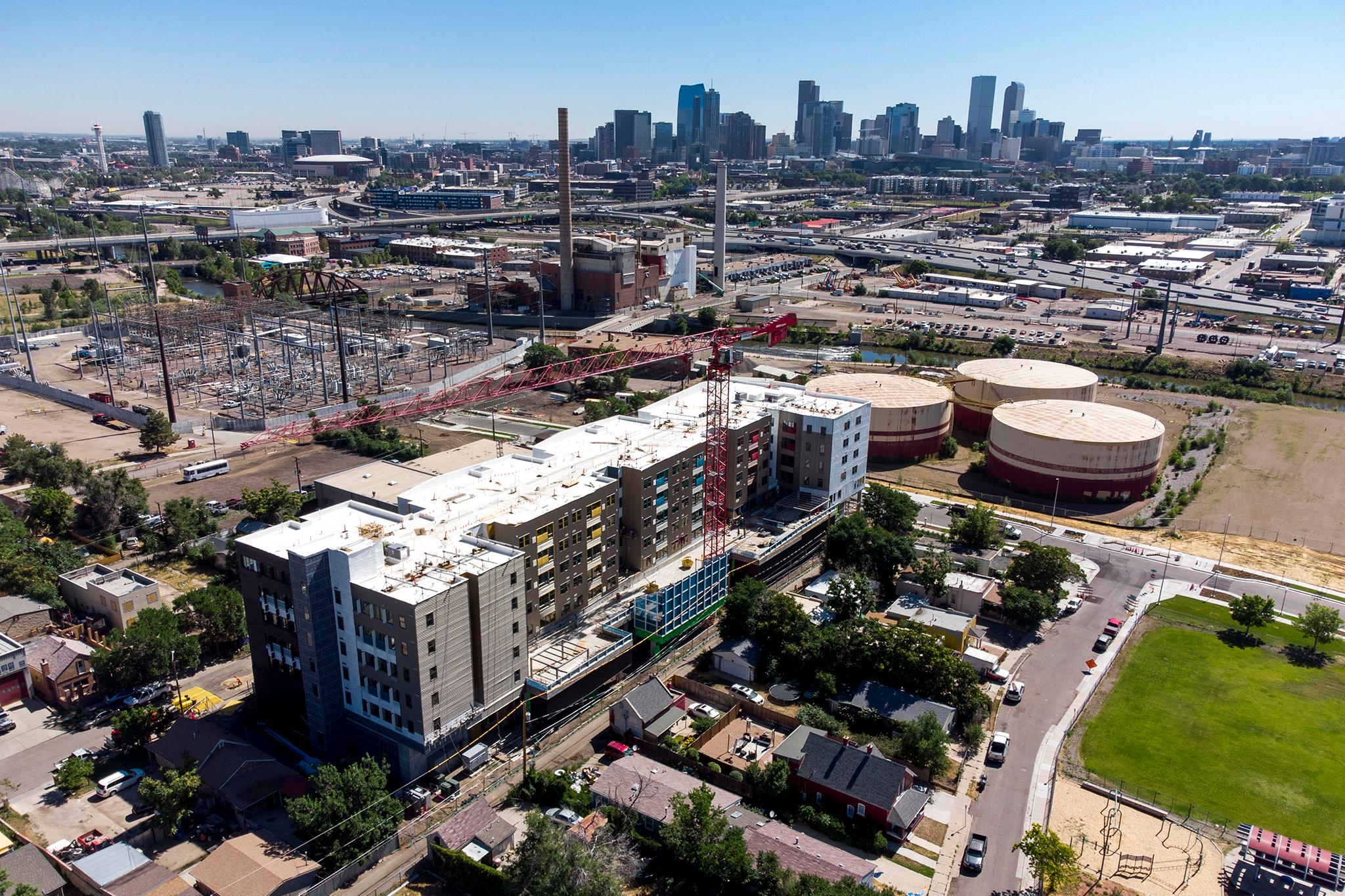The Denver Housing Authority just received a funding pipeline to continue redevelopment in the Sun Valley neighborhood.
City Council approved on Monday the Sun Valley Homes Urban Redevelopment Plan and implementation of the Sun Valley Homes Urban Redevelopment Area in an 11-1 vote. Councilmember Candi CdeBaca voted no.
The designation will only apply to areas owned by DHA, and it allows DHA to receive tax increment financing, or TIF funding, through the Denver Urban Renewal Authority. TIF is a tool that takes newly created tax revenues, specifically sales and property taxes, resulting from the project and uses that money for reimbursement of redevelopment costs.
DURA is responsible for identifying areas that are vacant, deteriorated or "blighted." Once those areas are found the agency works with developers to figure out how to redevelop those sites. DURA determined that the areas owned by DHA are blighted for several reasons, including inadequate street layout, substantial underutilization or vacancy of buildings.
With the funding, DHA is expected to receive up to $10.3 million to pay for new roads, a park and new housing.
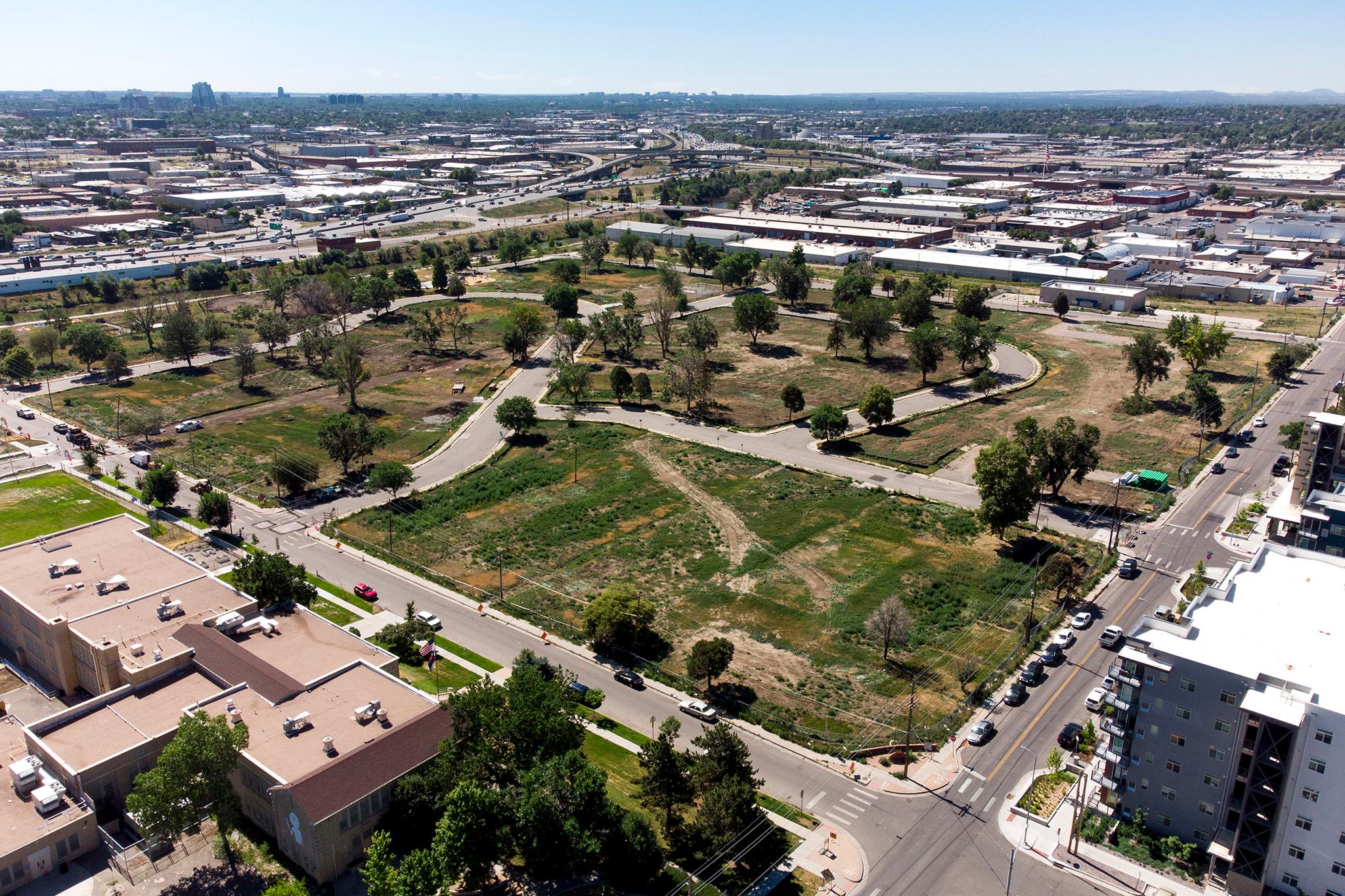
According to Councilmember Jamie Torres, whose district includes Sun Valley, it's another step in ensuring the completion of the redevelopment.
Sun Valley is home to Empower Field and bordered by Interstate 25, Federal Boulevard and 6th and 20th avenues. It once had a population of about 1,500 people, most of whom lived in Sun Valley Homes.
DHA first began redeveloping the area in 2018, with a goal of demolishing the existing public housing and creating a mixed-income neighborhood that would add over 950 new homes to house over 2,500 residents.
So far, DHA has completed two buildings, Gateway North and South, which house 187 affordable and market rate units. Gateway South also houses Decatur Fresh, a local supermarket that was highly requested by residents.
Two new apartment complexes, GreenHaus and Thrive, are nearing completion, and leasing is expected to begin by the end of this year. The two buildings will house 264 units of one to five bedrooms with 70 units being priced at market rate. Thrive will have 43 units geared towards those making 60 to 80 percent of the area median income (AMI) and GreenHaus will have 26 units for those making 40 to 60 percent AMI.
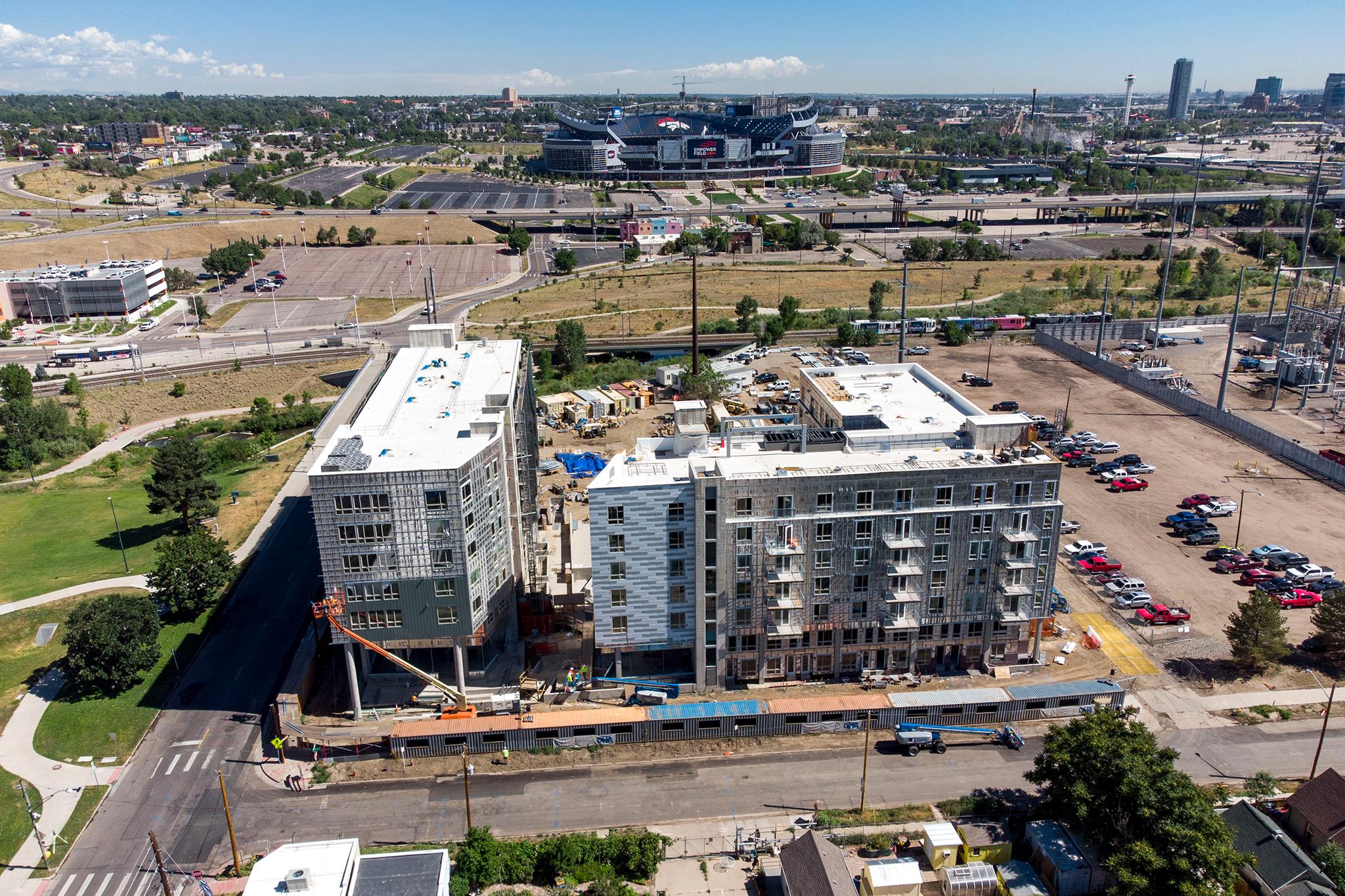
The remaining units are for residents who were displaced during the demolition of the red-brick buildings. Those units will remain "deeply affordable," meaning they're available for those making less than 30% AMI. A family of three bringing in a 30% AMI salary makes around $31,800.
DHA intends to construct three additional complexes; Sol, Joli and Flo. Besides housing, DHA is also working on the infrastructure of the neighborhood with the 13th Avenue realignment project, which will bring a grid back to the neighborhood, creating new connections to the outside as well as new ways of movement inside.
DHA initially received a $30 million grant from the U.S. Housing and Urban Development, but more funding is needed.
TIF funding is one of the way to get that funding.
With TIF, property and sales taxes will not increase. But, again, DHA would receive a portion of new revenue created from the development. On the property tax side, DHA would only receive the TIF funding on the market-rate properties on DHA land. On the sales tax side, DHA would receive funding from businesses that are also on DHA land, like Decatur Fresh.
"There's so much that's new here that you can't fund with the original $30 million grant or the bond dollars or the sale of properties alone," Torres said. "There has to be some sort of sustaining funds that are going to come in. All of that helps ensure this gets built, that all the amenities are there for all the residents that will one day call Sun Valley home and so they can really build out their 1,000-plus affordable units."
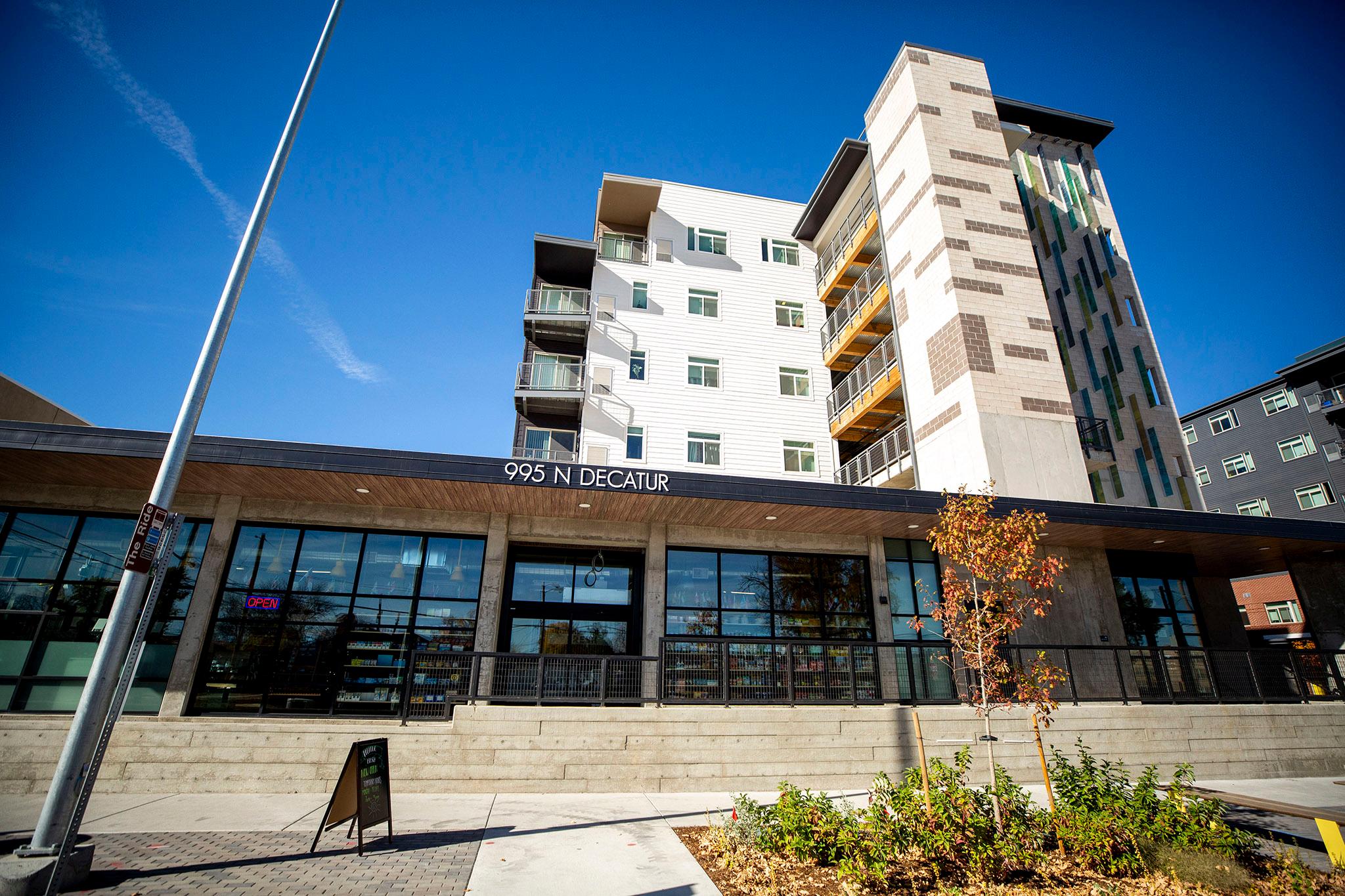
Another way DHA is seeking funding is through the creation of a general improvement district. City Council approved DHA's request for a GID last month.
A GID is a pseudo-governmental organization that collects additional taxes from all property owners in the district in order to maintain streetscapes, planned public improvements, open spaces, and green infrastructure. Basically the creation of the district provides additional funding to enhance the neighborhood and the funding covers things that go beyond city standards.
GIDs are similar to Business Improvement Districts, except BIDs are funded by commercial property owners only.
There are three GIDs, according to Denver's Department of Finance.
- "The Gateway Village GID in Montbello maintains landscape and fence improvements.
- The 14th St. GID facilitates financing, maintenance, and enhanced improvements along the 14th St. right of way.
- The RiNo Denver GID facilitates financing, maintenance, and enhanced improvements along the Brighton Boulevard corridor."
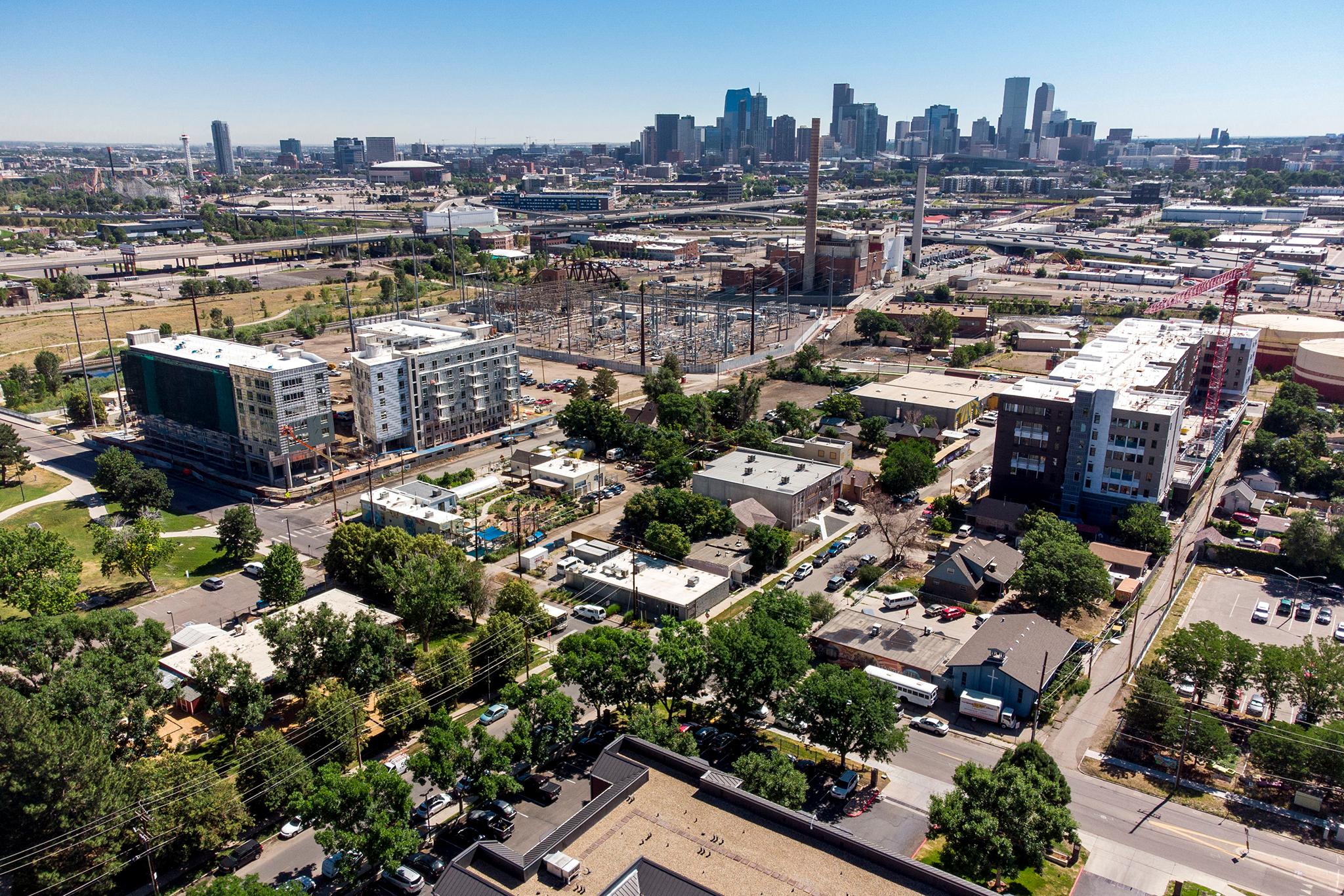
The GID also only affects those on DHA land and won't affect residents in income-restricted housing.
"All of these pieces are stacking puzzle pieces to building out an entire neighborhood that has three-times as much housing as was there previously," Torres said. "All of that riverfront park is going to be brand new. All of the multistory buildings are going to be brand new. It is part of making sure that this is done effectively and it's repairing things that have never been done like streets that go through Sun Valley instead of ending at a cul-de-sac. This is what is necessary to really handle the vertical construction."
During the public hearing period, two speakers, including David Roybal who is running for District 3's council seat against Torres, expressed concern over whether the new developments would really benefit Sun Valley residents. Roybal added that DHA has owned the housing for years and never thought to improve any of the buildings, streets or sidewalks. Jeanne Granville, president of the Sun Valley Community Coalition, spoke on behalf of the RNO who voted to support the ordinance. The improved streets and increase in the affordable units would benefit the neighborhood.
"This plan has been a longtime coming," Granville said. "We're really pleased that we'll be leasing over half of the planned affordable housing, which is substantially more than what we even started with."

